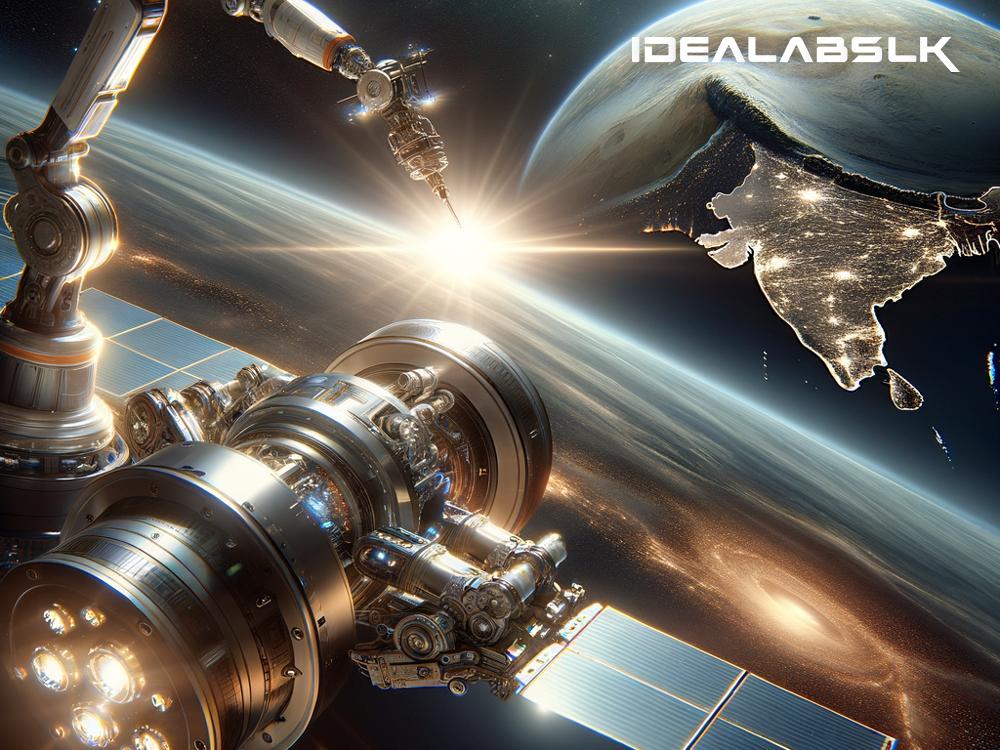How Artificial Intelligence Will Help Space Exploration Reach New Heights in 2024
In the past few years, artificial intelligence (AI) has leaped from being a mere concept in science fiction movies to becoming a powerful tool that is transforming the way we live, work, and explore the universe. As we step into 2024, AI technology is set to play a pivotal role in pushing the boundaries of space exploration to new heights. But how exactly is AI planning to make this colossal impact? Let's dive in!
Smart Robots to Explore the Unknown
One of the most exciting applications of AI in space is in the development of smart robots. These aren't your typical robots; they are equipped with AI brains that allow them to make decisions, solve problems, and even learn from their experiences, much like a human would. Think about rovers on Mars or probes sent to distant moons. With AI, these machines can navigate rough terrains, analyze soil samples, and even search for signs of life with minimal input from Earth. This means we can explore far-off places more efficiently and thoroughly than ever before.
AI-Powered Spacecraft for Safer Journeys
Traveling in space is not only about exploration but also about ensuring the safety of astronauts and spacecraft. AI is stepping in as a crucial tool for predicting and avoiding potential hazards. Spacecraft equipped with AI systems can process vast amounts of data in real-time, from monitoring the health of the spacecraft to adjusting its course to avoid colliding with space debris. By doing so, AI not only ensures the safety of the mission but also significantly reduces the need for constant human monitoring, making space travel safer and more autonomous.
Making Sense of Space Data
The amount of data coming from space is astronomical (pun intended). From distant galaxies to the surface of Mars, every captured image or signal holds valuable information. However, analyzing this data manually is an overwhelming, time-consuming task. This is where AI shines. With its ability to quickly sift through data, AI can identify patterns and anomalies that might take humans years to spot. This means we can discover new planets, understand the climate of Mars, and even predict cosmic events with greater accuracy and efficiency.
AI Assists in Designing Space Missions
Planning a space mission is a complex process that involves countless simulations and calculations. AI is now helping scientists and engineers streamline this process by optimizing spacecraft designs, calculating the best trajectories, and simulating various mission scenarios. This not only saves valuable time and resources but also allows for more innovative mission planning, enabling us to aim for more ambitious targets in our solar system and beyond.
The Future of Space Exploration with AI
As we look forward to 2024 and beyond, the integration of AI in space exploration holds the promise of more daring exploration missions, the discovery of new worlds, and even the possibility of human settlements in space. AI's role in analyzing and managing the health of astronauts, designing sustainable habitats, and providing autonomous support systems could be the key to sustaining life beyond Earth.
Moreover, AI could democratize space exploration. By reducing costs and accelerating research and development processes, smaller organizations and even countries with budding space programs could participate in the exploration of space, contributing to a global effort to understand and utilize the final frontier.
Conclusion
The union of AI and space exploration is a match made in the stars. The potential of AI to enhance our capabilities and expand our understanding of the universe is truly boundless. As we embrace 2024, we stand on the brink of a new era of space exploration, propelled by the ingenious combination of human curiosity and artificial intelligence. Together, they will lead us into new realms of discovery, pushing the boundaries of what we thought was possible and helping humanity to reach new heights among the stars. The future of space exploration is not just about where we can go, but how smartly and safely we can get there, and with AI, that future looks brighter than ever.

